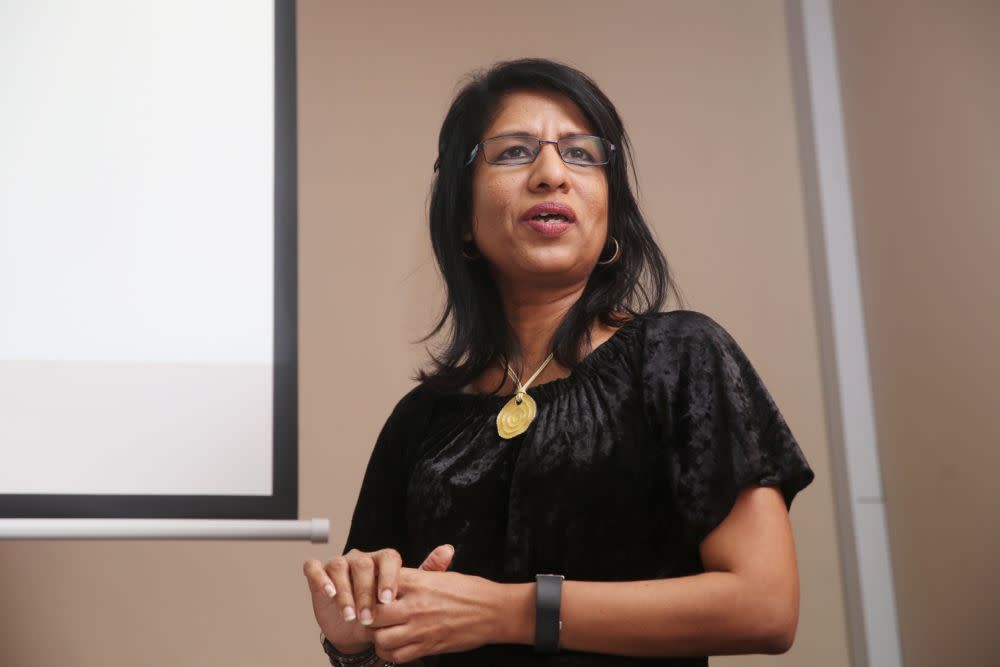Awareness about public political funding still low among Malaysians, says anti-graft advocates

KUALA LUMPUR, Jan 25 — On the back of calls for public political funding, anti-graft watchdog Centre to Combat Corruption and Cronyism (C4) said the will to realise the policy must come from the public.
However, C4 executive director Cynthia Gabriel said an understanding of the matter was still very low even in urban centres such as Kuala Lumpur and Petaling Jaya.
“It must be about the capacity building and changing of thinking, on how it (funds) can be used one of the obstacles is people see it as a wastage when this money can be used to build a hospital, why is it being spent on political parties.
“That conversation hasn’t even reached the Kuala Lumpur and Petaling Jaya types of constituents,” she said during a webinar hosted by the Coalition for Clean and Fair Elections (Bersih 2.0).
The election watchdog released today a report on public funding policy for political parties in Malaysia.
“This is a big challenge for Bersih 2.0. They have to actually take it to the residents’ association and communities to actually discuss these things.
“Because, my opinion, after working on this for several years, is that pressure has to come from the people if not it is not going to see the light of day,” she said referring to how Malaysians carried their discontent to the ballot box in the 2018 general election.
She also warned that if the issue was not stopped now, it would cost Malaysia billions.
“The problem is we don’t have legislation, and the Parliament is not suddenly going to vote in a Bill.
“It has to be the people saying if you’re not going to subscribe to these values I’m not going to vote for you and that has to be the culture of where we want to go starting with GE15,” she said.
She also said that based on experience as a Petaling Jaya councillor, there was little appetite for reforms.
“It is a risky venture, they could lose votes because it is not a popular (way of doing things).
“Why change, why reform while the other side is still operating with the same method,” she said referring to some questions asked on the ground.
Echoing her views was principal fellow at Universiti Kebangsaan Malaysia’s Institute of Ethnic Studies (KITA) Datuk Anis Yusal Yusoff who said it would be an uphill battle to convince politicians.
“I have been writing on this topic for the last 20 year, and especially in the last five years on how to push this further. I realise that no matter how good the idea is, the challenge is still how to convince the politicians themselves, for them to want to do this and see that it’s good for them and the country,” he said.
He also agreed that political literacy in Malaysia was at its lowest.
“I think the subject on political funding or donation is too abstract for the general public because, even basic things, they don’t know the difference between an assemblyman and an MP and their roles.
“Sometimes maybe we can do a quiz on assemblymen and MPs whether they know some of the spirit behind public political funding,” he said.
Bersih 2.0 previously urged the government to impose regulations on donations to political parties and candidates.
It said the Election Offences Act 1954 only regulates campaign spending by candidates during election campaigns while spending by political parties and others, including those for the benefits if the candidates are left largely unregulated.
The election watchdog made this call in light of Datuk Seri Tengku Adnan Mansor’s testimony in court last year during his trial for bribery.
Tengku Adnan was accused of taking RM2 million bribe from a businessman, who wanted to buy two plots of land belonging to the Kuala Lumpur City Hall.
He, however, said he did not benefit from the RM2 million and instead was channeled to help Umno in the Kuala Kangsar and Sungai Besar by-elections on June 18, 2016.
The party’s candidates subsequently won both seats.
Related Articles Bersih 2.0 moots public funding for political parties to level playing field, curb corruption Bersih 2.0 proposes three key reforms to Perak govt including fair allocation for all assemblymen Bersih 2.0: Don’t use revised Sabah Covid-19 travel SOP to gain political mileage for Budget 2021 vote



